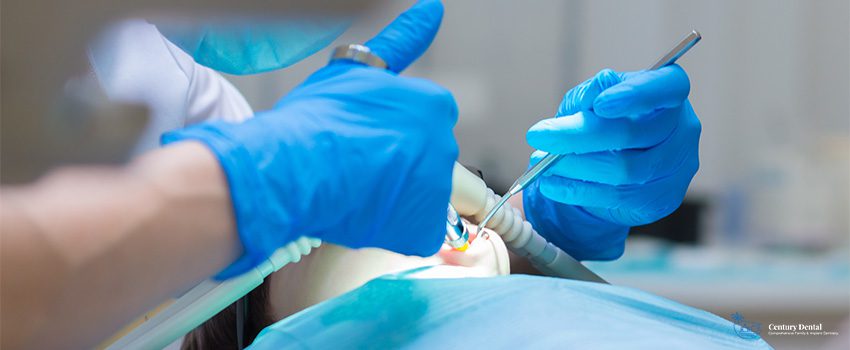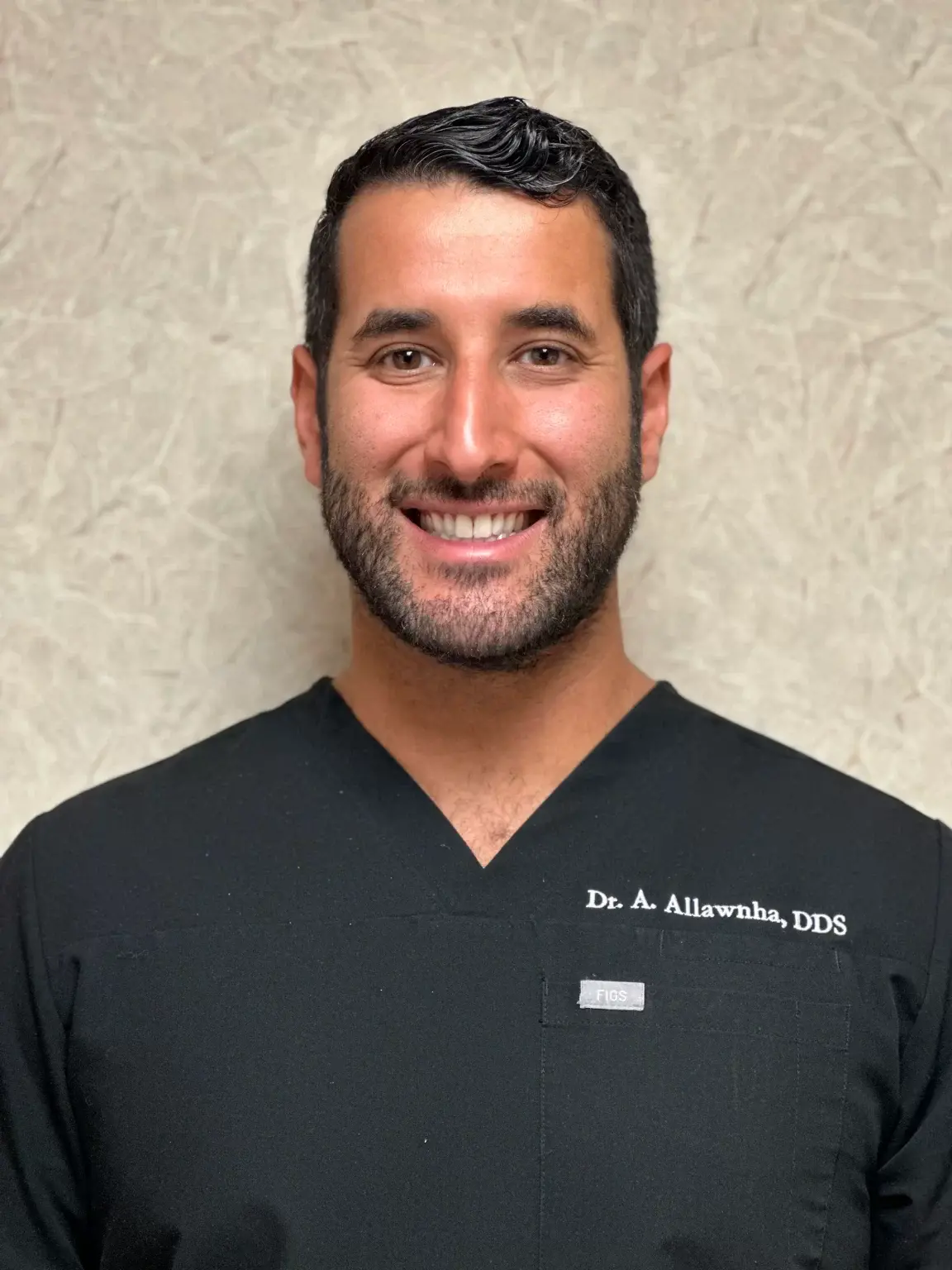The fear or anxiety in a dental setting can happen to anyone.
More often than not, dental fear hinders or delays someone from getting the dental care he or she needs. The thought of drills, needles, or even the dentist’s office itself triggers fear. Deep sedation is one way to help people manage their fear of a dentist.
If the fear is extreme and prevents anyone from going to a dentist, this might be classified as a dental phobia. This is where dental sedation comes in. Now, what is deep sedation? Century Dental is here to answer your questions about the procedure. Find out how it helps and if it’s right for you.
What Are the Downsides of Avoiding the Dentist?
Dental fear prevents a person from getting preventative dental care. When you skip dental appointments, you don’t get the necessary care you need. Minor dental issues may worsen over time. Your dental fear holds you back from maintaining your pearly whites.
You may develop the following dental problems when you don’t see a dentist regularly:
- Tooth Decay
- Tooth Loss
- Cavities
- Plaque Buildup
- Infection
- Gingivitis
- Periodontitis
- Bad Breath
It will also be difficult to keep bad dental habits in check, such as teeth clenching, grinding, constant snacking, chewing on hard objects, and brushing too hard. Deep sedation is only one of the many types of dental sedation that helps overcome dental fear.
Different Types of Dental Sedation
People who will undergo wisdom tooth removal and other dental procedures or have dental anxiety will benefit from dental sedation. Consider dental sedation if you want to sit in the dental chair without worries.
Here’s an overview of the different types of dental sedation:
1. Oral Sedation
Oral sedation is typically given for minor procedures such as root canal treatment or a tooth filling. Your dentist gives you a tablet or a pill 30 minutes or an hour before the procedure. Benzodiazepines are typically the medicine your dentist will administer.
They have a quick onset, but the effects last only for a short time. However, it lasts long enough for your dentist to perform the procedure. Depending on your tolerance, dose, and the medicine, you may need to have someone accompany you.
2. Inhaled Minimal Dental Sedation
Your dentist uses nitrous oxide or “laughing gas.” With this type of sedation, your dentist uses an apparatus to cover your nose. Once administered, you’ll still be fully conscious. The gas helps manage your anxiety. Your dentist may recommend this for people who get anxious during dental examinations, dental cleaning, or other minor dental procedures.
Nitrous oxide can be used in conjunction with a stronger type of sedation. Nitrous oxide takes effect almost immediately. Others feel relaxed within 30 seconds. However, the effects wear off right away when the gas is gone. You may even be able to drive yourself home after the procedure.
3. IV Moderate Dental Sedation
There are two primary types of IV sedation: twilight sedation and general anesthesia. With twilight sedation, you’ll be sleepy yet still conscious of your surroundings. Patients typically feel the effects within minutes.
Only qualified professionals are allowed to administer IV sedation. Dentists will recommend this if you’re about to undergo tooth extraction, root canal treatment, or wisdom tooth extraction.
4. Deep Dental Sedation
What is deep sedation?
For deep sedation, your dentist will administer medications that can either make you partially or fully unconscious. The effects of this type of sedation last longer compared to other types of sedation.
You’ll be on the brink of unconsciousness with deep sedation dentistry. With deep sedation, you’ll have to wait for the medicine’s effects to wear off before you become fully alert.
Questions to Ask Your Dentist Before Dental Sedation
Before undergoing any sedation, it’s best to ask your dentist about it to arrive at an informed decision. Your dentist will be more than willing to answer your queries about deep sedation dentistry to put your mind at ease.
Here are some questions you can ask to get you started:
1. Am I a candidate for dental sedation?
Before any dental procedure, your dentist will ask about your:
- medical history
- age
- health
- physical discomfort
- worries about the dental procedure, and
- medications you’re taking
These factors will determine whether deep sedation is the right way to go. After an in-depth pre-examination, your dentist will discuss the options that may work for you. Here are some of the special precautions with dental sedation:
- Old Age: Older adults, especially those who have underlying health conditions, will need careful monitoring and dose adjustments during the procedure.
- Pregnancy: If you’re pregnant, your dentist will discuss the pros and cons of dental sedation for you and your unborn child.
- Special Needs: People with special needs will undergo a careful evaluation to know the right type of dental sedation and dosage to avoid adverse effects and overdose.
2. What type of dental sedation is right for me?
What might work for one patient may not work for another. If others only need oral sedation, the case might be different for you. Certain types of dental sedation require needles, which may be a deal-breaker if you get anxious around needles.
It also depends if you’ll undergo major surgery. If you are, your dentist may recommend deep sedation.
3. What are the risks and side effects?
Your dentist will discuss the risks and possible side effects of any sedation. It’s important to be 100% honest about your medical history, medications, allergies, and state of health.
That way, your dentist will be able to weigh the pros and cons of each dental sedation and choose the ideal one for you. Only a complete assessment will determine if you’re a candidate for oral sedation, inhaled sedation, IV sedation, or deep sedation.
4. Is deep sedation dentistry safe?
Any type of dental sedation is safe as long as a licensed medical professional administers it. People who suffer from certain health conditions should consult their primary care doctor. Individuals with these conditions are likely to experience complications from the medications:
- Obstructive sleep apnea
- High blood pressure
- Heart problems
- Seizure disorder
- Obesity
5. What are the benefits of dental sedation?
Dental sedation allows patients to undergo dental procedures without fear. Oral, inhalation, IV, and deep sedation offer the same benefits. They help ease dental anxiety.
Deep sedation dentistry is appropriate for individuals who:
- have sensitive teeth
- have a gag reflex
- have a previous bad experience with another dentist
- have a low pain tolerance
- have trust issues
- have a fear of losing control
- have PTSD, generalized anxiety, or depression
With the many dental sedation options, you’ll have one that best fits your needs.
6. How experienced are you in dental sedation?
The different types of sedation require different levels of expertise. Most dentists are allowed to administer oral and inhaled minimal sedation. The more complex sedation techniques—IV sedation, general anesthesia, and deep sedation—require completing the Commission on Dental Accreditation program.
Usually, dental anesthesiologists and maxillofacial surgeons are accredited to perform deep sedation. At times, dental offices outsource dentist anesthesiologists who can administer all levels of sedation on children and adults alike.
If you want someone who has handled several patients before you, don’t hesitate to ask how much experience your dentist has, especially if it’s your first time. The years of experience will also put you at ease knowing your oral practitioner is good at what they do.
7. How will I feel after the procedure?
After the dental procedure, you may feel disoriented for a few hours. You may need to rest until the sedation wears off. With any deep sedation dentistry, except for laughing gas, you will need someone to drive you home.
Know More About Deep Sedation Dentistry at Century Dental
What is deep sedation? Our licensed dentists in Treasure Island, FL, at Century Dental will gladly explain to you everything about it and put your worries to rest.
We have the knowledge, experience, and skills to administer deep sedation, oral sedation, and other types of dental sedation. If you or someone you know is suffering from dental anxiety, dental sedation might be right for you.
Schedule an appointment with us today. Let’s talk about deep sedation. Our team will ease your fears of sitting in a dental chair. Get the care your teeth and mouth deserve at Century Dental.





